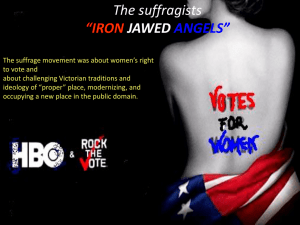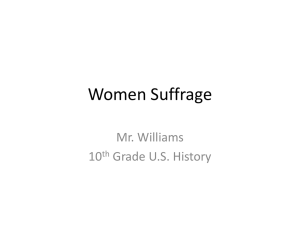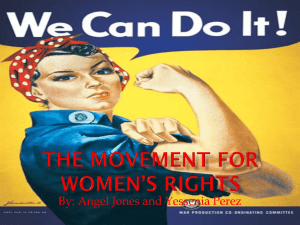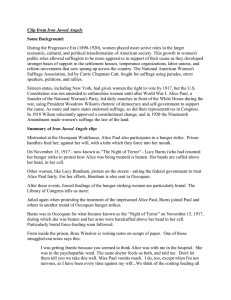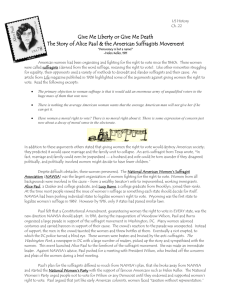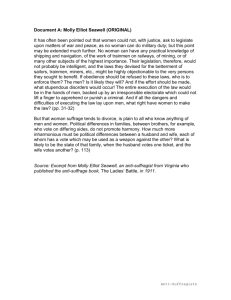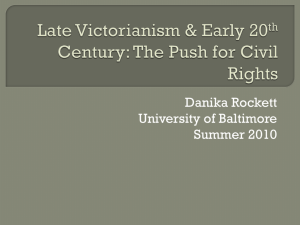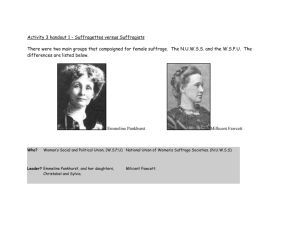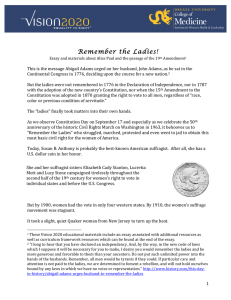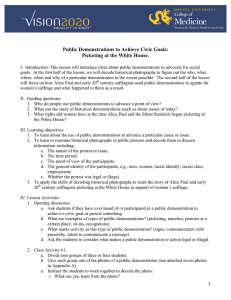After Viewing The running time of Iron Jawed Angels is 120 minutes
advertisement
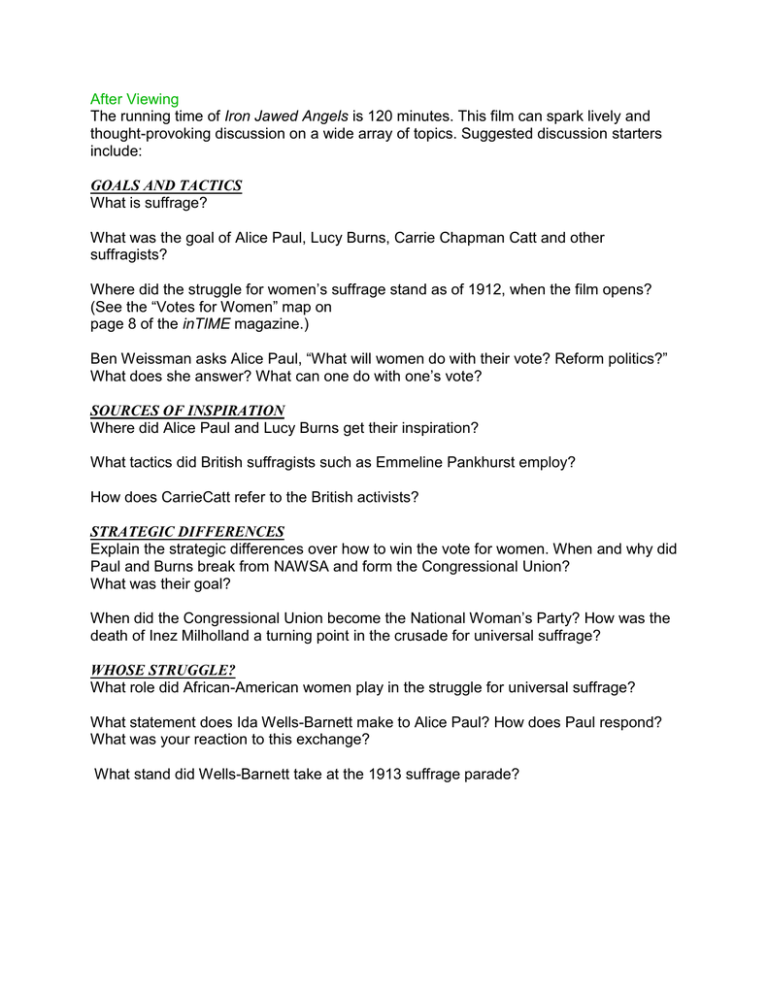
After Viewing The running time of Iron Jawed Angels is 120 minutes. This film can spark lively and thought-provoking discussion on a wide array of topics. Suggested discussion starters include: GOALS AND TACTICS What is suffrage? What was the goal of Alice Paul, Lucy Burns, Carrie Chapman Catt and other suffragists? Where did the struggle for women’s suffrage stand as of 1912, when the film opens? (See the “Votes for Women” map on page 8 of the inTIME magazine.) Ben Weissman asks Alice Paul, “What will women do with their vote? Reform politics?” What does she answer? What can one do with one’s vote? SOURCES OF INSPIRATION Where did Alice Paul and Lucy Burns get their inspiration? What tactics did British suffragists such as Emmeline Pankhurst employ? How does CarrieCatt refer to the British activists? STRATEGIC DIFFERENCES Explain the strategic differences over how to win the vote for women. When and why did Paul and Burns break from NAWSA and form the Congressional Union? What was their goal? When did the Congressional Union become the National Woman’s Party? How was the death of Inez Milholland a turning point in the crusade for universal suffrage? WHOSE STRUGGLE? What role did African-American women play in the struggle for universal suffrage? What statement does Ida Wells-Barnett make to Alice Paul? How does Paul respond? What was your reaction to this exchange? What stand did Wells-Barnett take at the 1913 suffrage parade? MILITANT TACTICS What was the reaction of the press, the White House, Carrie Chapman Catt and NAWSA to the NWP’s decision to picket the White House? How did the declaration of war in 1917 affect suffragists on the picket line? Describe the arrests and imprisonment in Occoquan. How did the women come to be called “Iron Jawed Angels”? NONVIOLENT PROTEST How did the jailed suffragists protest? With what results? Describe Alice Paul’s interview with the prison psychiatrist and his report to the White House. Can you imagine going on a hunger strike? What might motivate such a decision? Do you think the suffragists were actually willing to die for their cause? POLITICAL PRISONERS What does it mean to be a political prisoner as opposed to a prisoner jailed for a criminal offense? In your view, do the suffragists qualify as political prisoners? THE PRESIDENT’S ROLE Review Woodrow Wilson’s stance on suffrage. How and why did his position on votes for women evolve? What happened in the 1916 elections? Describe the interactions between Wilson and the suffragists. What finally changed Wilson’s mind? What did he do? According to Wilson, in what ways was suffrage for women a war measure? AMENDING THE CONSTITUTION What is the significance of the fictionalized story of Emily Leighton and her Senator husband? Who cast the crucial vote for the 19th Amendment? What was the Amendment called? Review the 19th Amendment to the U.S. Constitution. How is a constitutional amendment ratified? ELEMENTS OF STYLE What contemporary elements did director Katja von Garnier incorporate in the film? In your view, how do these stylistic decisions affect the film’ s impact? QUOTES FOR ANALYSIS Discuss the following quotations. Explain each statement and place it in context. Ruza Wenclawska: “A vote is a fire escape.” Woodrow Wilson: “We shall fight for the things which we have always carried nearest to our hearts, for democracy, for the right of those who submit to authority to have a voice in their own governments.” Alice Paul: “Look into your own heart, I swear to you, mine’s no different.…You want a voice in the government under which you live? So do I.” THE BIG PICTURE Would you characterize Alice Paul and Lucy Burns as heroes? As patriots? What contributions did each make to the suffrage movement? To American democracy? http://www.time.com/time/classroom/voting/pdfs/teacher.pdf
